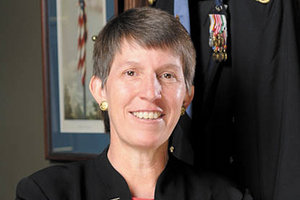First and foremost, the successful doctor of chiropractic must embrace the fact that they have a responsibility to lead. Then they must choose to lead and hold themselves accountable to be the example.
So, how do DCs do that? You must engage both your heart and your mind. That's right: leadership is the fusion of heart and mind. We must combine our emotional intelligence with our intellect. Leading takes character (heart) and competence (mind) – not one or the other.
To be successful, you also have to be willing to serve and to follow; which means placing others first, making yourself available and being approachable. I begin my leadership book, 24/7, by presenting what I believe are five simple, but not simplistic, truths about leadership. I believe they are helpful for setting the stage on the subject of leadership:
- You have at least one person to lead – yourself!
- Leadership is a choice!
- You lead differently because of your unique leader DNA.
- You must identify your strengths and manage your weaknesses – you have both.
- When you lead yourself better, you lead others better!
There are endless benefits of leading, whereas the cost of not leading, like Newton's Third Law of Motion, results in an equal and opposite reaction, and it's not a positive one.
 Every DC wants to establish and operate a successful practice. To do so, you must lead and set the conditions for success by creating an ethical, fair, organized and effective work environment. You must also deliver a service to your patients, and that requires being competent, compassionate and having character.
Every DC wants to establish and operate a successful practice. To do so, you must lead and set the conditions for success by creating an ethical, fair, organized and effective work environment. You must also deliver a service to your patients, and that requires being competent, compassionate and having character.
Like any business or profession, there will be times of challenge and crisis, and DCs will have to be leaders who create the calm and provide hope, direction, wisdom and solutions. You will be required to make the tough decisions. You must communicate and connect to your team and to your patients.
When you are leading yourself and your practice well, the environment will be productive, patients will feel connected and comfortable from the minute they arrive until they leave, they will return – and they will heal.
The cost of not leading well is the opposite of all those positive impacts: there will be friction among the team, turnover of patients, striving instead of thriving, and you will find yourself in a constant challenge to keep the practice going month to month.
I encourage you to take some time, quiet time, and reflect on your leadership style. Evaluate yourself and think about how you interact with people and how you make decisions. Most importantly, assess and identify what values are most important to you as a leader.
I recommend you start by writing down your top five values on a 3x5 card, and then carry that card in your pocket or purse for 30 days. As you make decisions, and interact with your staff, patients, family and community, you should evaluate yourself – are your actions and behaviors reflecting your values? If not, then you need to either change your actions / behaviors or reassess your values. It can be a very powerful exercise.
I also recommend you ask those you lead (your staff, your children) and lead with (if you are sharing a practice and if you are married or in a relationship, your spouse / partner), what they think you could do to be a better leader for them. I often did this with my people and was amazed by some of the feedback!
I also encourage you to be yourself! Yes, having role models and mentors is important, but you must be yourself. Leaders must be comfortable and confident in their own skin. I don't believe in "fake it until you make it." Stay real, be humble, place others first, and define your success by how you make others successful.
Leading is about the led. Leading is not about the general; it is about the soldier. It is not about the doctor; it is about the patient.
I suggest you ask yourself, "What is my definition of leadership?" By defining it yourself, you begin to focus on what you believe is required to lead others, and why it is important. In other words, you take "ownership" of your "leadership."
At the very end of my book, I provide my definition of leadership. It is crafted from my experiences, knowledge, relationships and values that are important to me. The beauty in the exercise is that there is no wrong answer! I believe your definition changes over time because every day we should be learning something new, developing new friendships, and dealing with new experiences that influence how we think and act.
Last, but not least, be willing to keep learning every single day. Watch others lead, read about leadership, mentor others, coach your peers, and always lead yourself first. You can teach an old dog a new trick. The day we stop learning is the day we stop leading and living.
Retired Brig. Gen. Becky Halstead, the first woman in U.S. history to command in combat at the strategic level (3rd Corps Support Command in Iraq), is the founder of STEADFAST Leadership, LLC, and a spokesperson for the Foundation for Chiropractic Progress (F4CP). She has just published her inspirational book, 24/7: The First Person You Must Lead Is YOU (January 2014, ISBN-13: 978-1451592870). In it, Halstead addresses the importance of leading yourself to wellness as part of your daily battle rhythm, and credits chiropractic for providing drug-free relief of her debilitating fibromyalgia symptoms.




